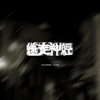 It seems that there has been a recent surge of interest in experimental music coming out of the People’s Republic of China in recent months, perhaps culminating in the recent Sub Rosa compilation that John Kealy expertly covered here on Brainwashed. Now, the diffusion is taking place, and artists like Li Jianhong (one half of VagusNerve) and Torturing Nurse are making strides into the global experimental and noise scenes. The venerable Utech label is mining this fertile ground with the new Shokyo Ontei series of albums, which begins here.
It seems that there has been a recent surge of interest in experimental music coming out of the People’s Republic of China in recent months, perhaps culminating in the recent Sub Rosa compilation that John Kealy expertly covered here on Brainwashed. Now, the diffusion is taking place, and artists like Li Jianhong (one half of VagusNerve) and Torturing Nurse are making strides into the global experimental and noise scenes. The venerable Utech label is mining this fertile ground with the new Shokyo Ontei series of albums, which begins here.
VagusNerve is the collaboration between avant guitarist Li Jianhong and laptop musician Vavabond, who together weave dense, multifaceted textures of sound which, for all their layers never completely obscure either artists’ contributions. For a label that has so expertly cornered the dark drone market, here the sound is much lighter and diverse, thus coming as quite a surprise.
The eight minute introductory piece "In the Summer of 2006, Li Made a Dream About a LoPan and a UFO" begins with force: an immediate surge of grinding laptop noise and traces of gentle, buried guitar. The track remains a complex, extremely diverse recording throughout, with dense layers of serpentine sound constantly slithering. It is only towards the end that the track begins to wind down and separate into a more rudimentary mix.
The second track, "Vavabond Felt Some Magical Power Hiding Between the Symbols, Numbers, and Text on the LoPan" errs more on the side of aggressive sound, with the guitar playing being obscured by hollow reverbs, electronic pulses and other digital elements. While the guitar initially is just as dissonant of an element, sounding mostly like siren squeals, the track eventually evolves into more “conventional” territory. The latter third of the piece especially demonstrates more traditional guitar sounds and less abstract laptop elements, to weave an extremely mutated form of post-rock that has a familiar feel, but sounds like nothing else.
The final (and longest) piece, "No Doubt, the LoPan is a Universe" mixes multiple elements into a single, near half hour track. The opening of fuzzy guitar drones and digital static are not an especially unique sound, but they transition into a heavy form of ambience that mixes conventional guitar and untraditional electronics together. The center segment amplifies the digital noise far more than anywhere else, pushing the track into laptop squeal along the lines of John Wiese or other practitioners. Then, the guitar enters the fray once again, creating a brand of ambient guitar rock that, when combined with the laptop sounds, comes across like a song just a bit off on the radio dial, and no fidgeting with the knob will get it to lock into place. The gentle ending to the album is one of the few overt moments of breathing room here.
The most remarkable aspect of LoPan is how adeptly it blends sounds that are on their own rather harsh and dissonant, and yet the two artists mold and shape them into something far greater than the sum of its parts, and into a sound that feels somehow inviting and familiar, yet completely alien. Rarely is there something that could be truly described as "ethereal noise," but this is a prime example.
samples:
- Li Made a Dream About a LoPan and a UFO
- Vavabond Felt Some Magical Power Hiding Between the Symbols, Numbers, and Text on the LoPan
- No Doubt, the LoPan is a Universe
Read More

